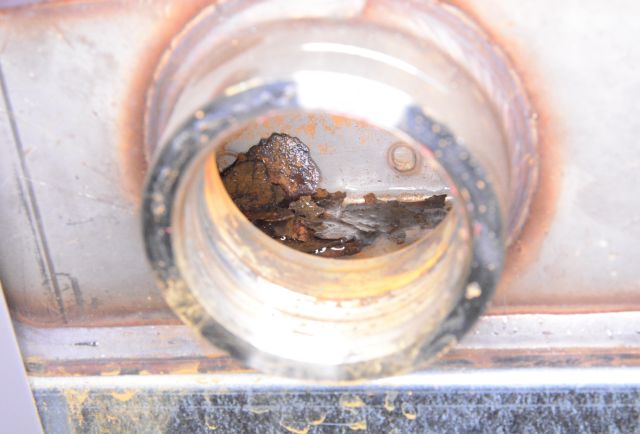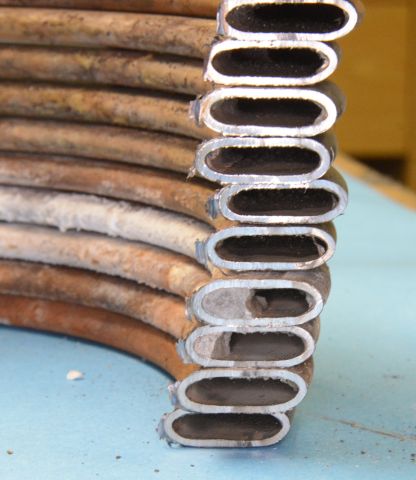LAVAL 1 800 361-0338
Lévis 1 866 835-5335
Commercial Boilers and the Impact of Water Chemistry
 We regularly observe the failure of small boilers in commercial buildings within a few years of service. However, when properly maintained, these boilers should operate for a period of more than a dozen, or even fifteen years.
We regularly observe the failure of small boilers in commercial buildings within a few years of service. However, when properly maintained, these boilers should operate for a period of more than a dozen, or even fifteen years.
The most common cause of this failure is a water leak in the circuit. Water in a boiler circulates in a closed circuit; therefore, the same water is used. However, during a leak, new water is introduced, which brings more oxygen and CaCO3 (limestone) into the system. The latter react with the pipes and generate corrosion and limescale deposits respectively in an accelerated manner.

Corrosion occurs throughout the piping system (especially for cast iron pipes). Limescale deposit appears more in high-temperature areas and thus quickly lodges inside boiler coils. As a result, rust buildup and gradual clogging of limescale in the boiler will cause malfunction, overheating and ultimately a major leak or fire.
In order to detect water leaks, we recommend installing a water meter directly in the closed circuit with a digital output. Proper water treatment is also essential, such as a product with the active ingredient MoO4 or NO2 to counteract corrosion, as well as polymer products (O-PO4, PSO) that control CaCO3 deposits. For better prevention, some may even recommend a controller with a fluorescence reader, metal coupons or a router for the remote control.
Knowledge of water treatment technologies is vital when one has to demonstrate how to avoid this type of failure. At Pyrotech BEI, Alain Marcotte is certified PAC2 and PAC3 from Nalco Water University. If needed, he can guide you through the issues involving the various types of heating systems..
By: Alain Marcotte
Metallurgical Engineering & Chemistry | Materials


